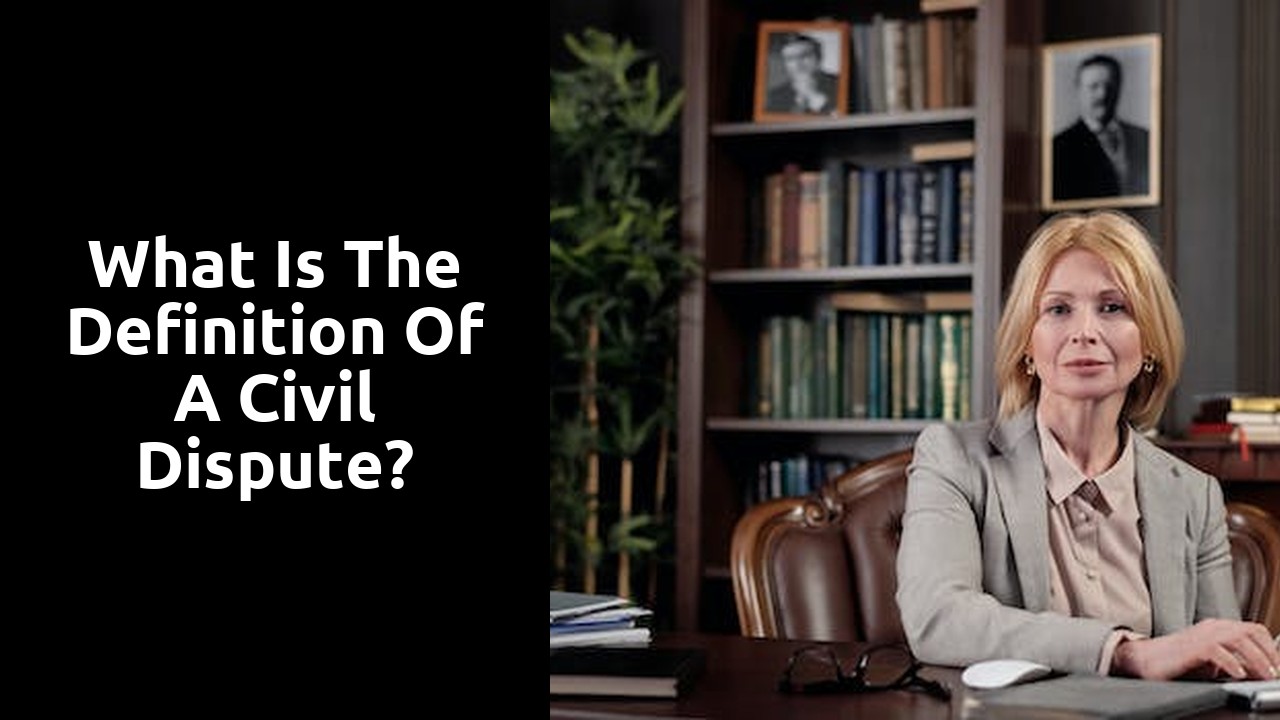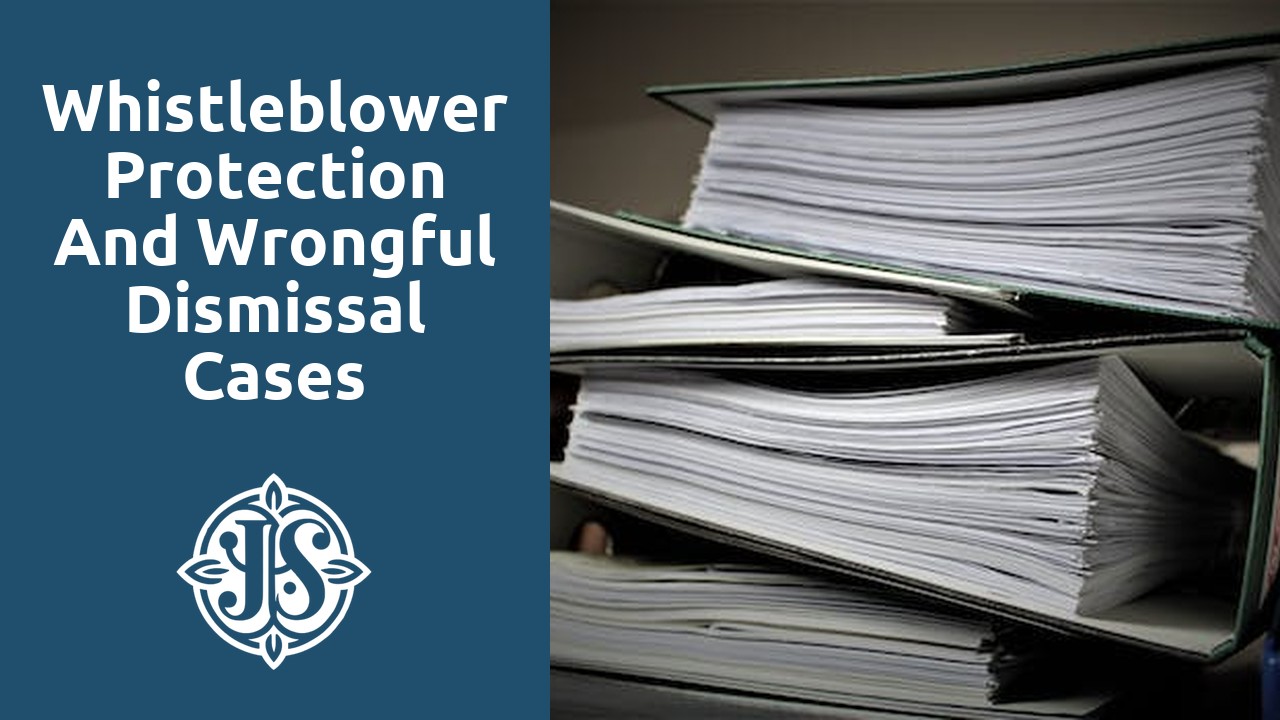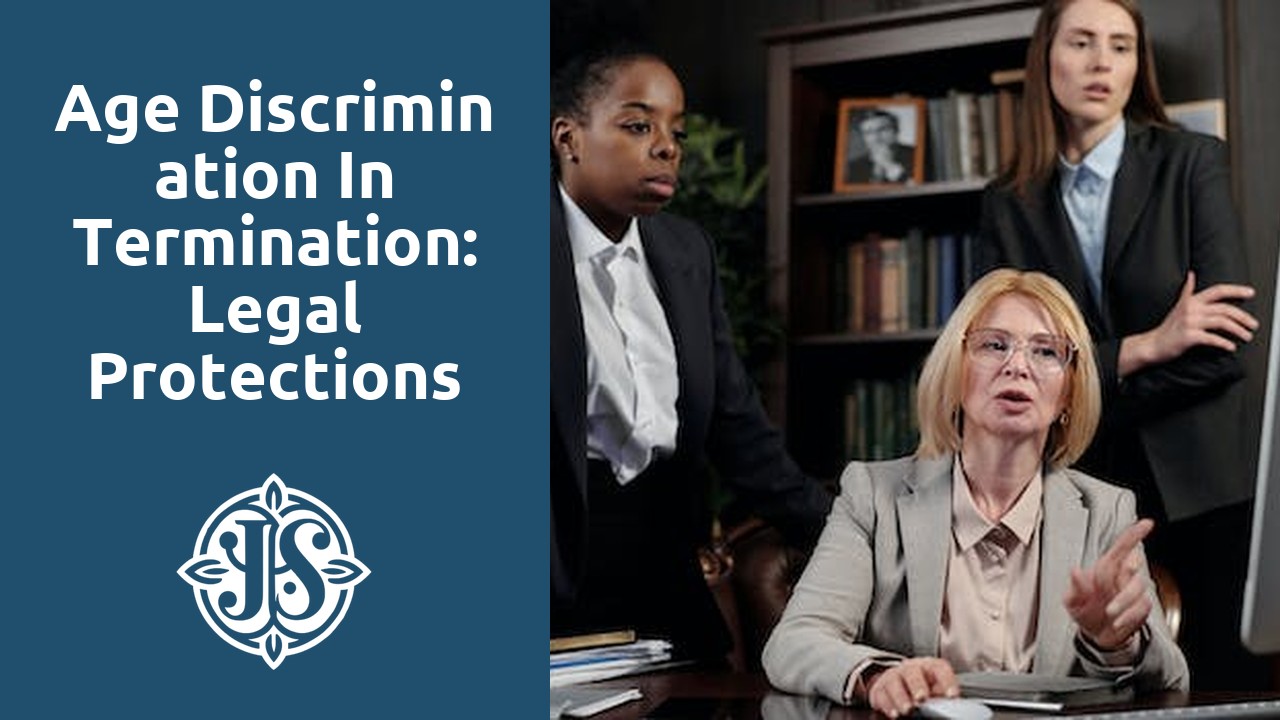Contents
- 1 Understanding the Nature of Civil Disputes
- 2 Key Elements of Civil Disputes Explained
- 3 Unraveling the Complexity of Civil Disputes
- 4 The Significance of Civil Disputes in Society
- 5 A Closer Look at Legal Conflicts: Civil Disputes
- 6 Exploring the Types of Disputes in Civil Law
- 7 FAQS
- 7.1 What is a civil dispute?
- 7.2 What are some examples of civil disputes?
- 7.3 How are civil disputes different from criminal disputes?
- 7.4 What is the role of the court in civil disputes?
- 7.5 Do civil disputes always result in litigation?
- 7.6 Can individuals represent themselves in civil disputes?
- 7.7 What is the goal of resolving a civil dispute?
- 7.8 How long does it take to resolve a civil dispute?
- 7.9 Can civil disputes be appealed?
- 7.10 What should I do if I am involved in a civil dispute?
Understanding the Nature of Civil Disputes
Civil disputes are an inherent part of a functioning society, arising when there is a conflict between two or more parties involving their rights, duties, or obligations. These disputes can entail a wide range of issues, such as property disputes, contract disputes, or personal injury claims. Unlike criminal disputes, civil disputes do not involve any criminal activity or violations of the law. They are instead concerned with resolving conflicts through legal means, typically seeking compensation or some form of resolution that attempts to restore the harmed party’s rights or status. The nature of civil disputes often requires a thorough understanding of legal frameworks and principles, as well as the ability to navigate complex legal processes.
Understanding the nature of civil disputes involves recognizing that they are primarily concerned with resolving conflicts between private individuals or entities, rather than seeking punishment or retribution. Civil disputes are often resolved through negotiation, mediation, or through the courts. In such cases, the judicial system plays a vital role in ensuring that both parties have the opportunity to present their side of the story and have their rights protected. The resolution of civil disputes aims to restore the balance of justice by rectifying any harm or wrongdoing that may have occurred. By seeking a fair and just outcome, civil disputes contribute to the overall stability and well-being of society, ensuring that individuals can resolve their conflicts in a civilized manner.
Key Elements of Civil Disputes Explained
Civil disputes, by definition, involve conflicts between two parties that are not criminal in nature. These conflicts typically arise from disagreements over rights, obligations, or duties between individuals, organizations, or institutions. One key element of civil disputes is that they are resolved through the legal system, often in a civil court. Unlike criminal cases, where the state prosecutes an individual for breaking the law, civil disputes are primarily concerned with resolving disputes between private entities, such as individuals or businesses.
Another crucial element of civil disputes is the concept of a legal remedy. In civil cases, the party who feels wronged seeks a remedy for the harm caused by the other party. This remedy may take the form of monetary compensation, an injunction to stop certain actions, or specific performance to enforce a contractual obligation. The legal remedy sought is based on the specific circumstances of the dispute, and the court’s decision aims to restore the harmed party to their previous state before the dispute arose. These key elements of civil disputes form the foundation for understanding the nature and resolution of these conflicts through the legal system.
Unraveling the Complexity of Civil Disputes
Unraveling the Complexity of Civil Disputes
Civil disputes can often be intricate and multifaceted, requiring a deep understanding of legal principles and the ability to navigate through complex legal processes. These disputes arise when two or more individuals, businesses, or organizations find themselves in disagreement over their legal rights or obligations.
At the heart of civil disputes lies a clash of competing interests. Each party may have their own interpretation of contractual obligations, property rights, or other legal matters. It is this clash that leads to the initiation of a civil dispute, which can then escalate into a full-blown legal conflict. The complexity of these disputes often arises from the need to unravel the intricate web of legal arguments, facts, and evidence presented by each party, making it crucial for legal professionals to carefully analyze the intricacies of the case.
The Significance of Civil Disputes in Society
Civil disputes play a significant role in society, as they provide individuals with a means to resolve conflicts in a peaceful and orderly manner. Whether it’s a disagreement over property rights, contractual obligations, or personal injury claims, civil disputes serve as a vital mechanism for upholding justice and safeguarding the rights of individuals. By allowing parties to present their arguments before an impartial judge or jury, civil disputes help maintain a fair and balanced legal system.
Furthermore, civil disputes contribute to the development of legal principles and precedents that guide future cases. Through the resolution of these disputes, courts establish interpretations of laws and regulations, shaping the legal landscape for society as a whole. This not only provides clarity and consistency in how disputes are handled, but it also allows for legal progress and adaptation to changing societal needs. Ultimately, the significance of civil disputes lies in their ability to foster a just and orderly society in which conflicts can be resolved through a structured and impartial legal process.
A Closer Look at Legal Conflicts: Civil Disputes
A civil dispute refers to a legal conflict between two or more parties that involves private rights rather than criminal offenses. These disputes can arise in various areas of law, such as contract disputes, property disputes, personal injury claims, or family law matters. Unlike criminal cases, where the state brings charges against an individual for violating the law, civil disputes typically involve individuals or organizations seeking a resolution to a disagreement or seeking compensation for harm suffered. In civil disputes, the goal is often to determine liability, establish the extent of damages, and reach a fair resolution through negotiation, mediation, or court proceedings.
Civil disputes can be complex and involve intricate legal principles and procedures. Understanding the nature of civil disputes is essential to navigate the legal system effectively. Key elements of civil disputes include the parties involved, the issues in contention, the legal claims and defenses presented, and the available remedies or outcomes sought. These disputes may arise between individuals, businesses, government entities, or a combination of these parties. The issues at the heart of the dispute can range from breach of contract to negligence, property rights, or disputes over child custody. To resolve these disputes, parties must present their legal arguments, gather evidence, and adhere to the rules and procedures set forth by the court.
Exploring the Types of Disputes in Civil Law
Civil law encompasses a wide range of disputes that can arise between individuals, organizations, or even between individuals and the government. One common type of civil dispute is a contract dispute. These disputes occur when two or more parties have entered into a legally binding agreement, but one party fails to fulfill their obligations. This could involve a breach of contract, where one party fails to deliver goods or services as promised, or a dispute over the interpretation of contract terms. Contract disputes can often be complex and may require legal intervention to resolve.
Another type of civil dispute is a property dispute. These disputes typically involve conflicts over ownership, use, or access to property. Property disputes can arise in various scenarios, such as disagreements over boundaries between neighboring properties, disputes over the rightful ownership of land or buildings, or conflicts over the use of shared spaces within a property. These disputes can be highly contentious, as they involve personal interests and rights to valuable assets. Resolution often involves careful examination of legal documents, such as land deeds and property titles, to determine the rightful owner or user of the disputed property.
FAQS
What is a civil dispute?
A civil dispute refers to a legal disagreement between two or more parties that typically involves private rights and remedies.
What are some examples of civil disputes?
Civil disputes can include a wide range of legal conflicts such as contract disputes, property disputes, personal injury claims, family law matters, landlord-tenant disputes, and employment disputes.
How are civil disputes different from criminal disputes?
Civil disputes are different from criminal disputes in that they involve private parties seeking legal remedies, whereas criminal disputes involve the prosecution of an individual by the government for violating a criminal law.
What is the role of the court in civil disputes?
The court plays a crucial role in civil disputes by providing a neutral forum where parties can present their arguments, evidence, and witnesses. The court’s role is to objectively analyze the case and make a legal decision or judgment.
Do civil disputes always result in litigation?
No, civil disputes do not always result in litigation. Parties involved in a civil dispute may opt for alternative dispute resolution methods such as mediation or arbitration to resolve their issues outside of court.
Can individuals represent themselves in civil disputes?
Yes, individuals have the right to represent themselves in civil disputes, but it is generally recommended to seek legal counsel to ensure a thorough understanding of the legal processes and to present a strong case.
What is the goal of resolving a civil dispute?
The ultimate goal of resolving a civil dispute is to reach a fair and just resolution that provides the parties with a satisfactory outcome and helps restore their rights or compensate for any harm suffered.
How long does it take to resolve a civil dispute?
The time it takes to resolve a civil dispute can vary widely depending on the complexity of the case, the willingness of parties to negotiate, and the court’s schedule. Some disputes can be resolved relatively quickly, while others may take months or even years to reach a resolution.
Can civil disputes be appealed?
Yes, civil disputes can be appealed if one party is dissatisfied with the court’s decision. The appellate process allows a higher court to review the lower court’s ruling to ensure that the law was applied correctly.
What should I do if I am involved in a civil dispute?
If you are involved in a civil dispute, it is advisable to consult with an experienced attorney who specializes in the relevant area of law. They can provide you with guidance, help you understand your rights, and advocate for your interests throughout the legal process.




